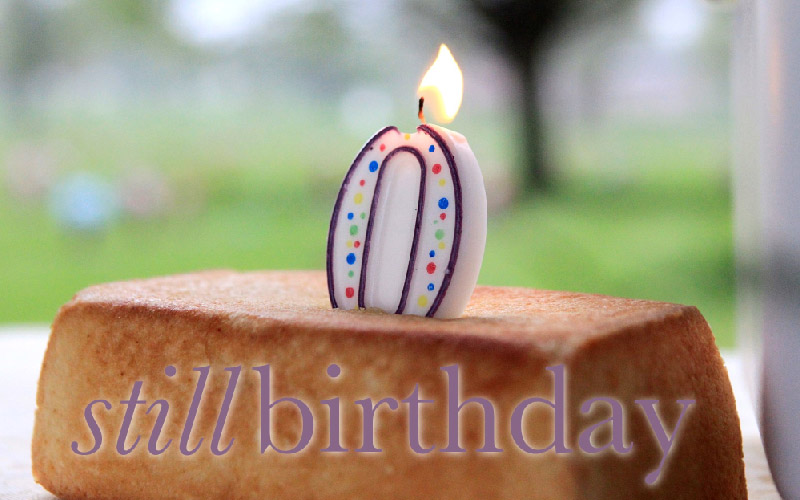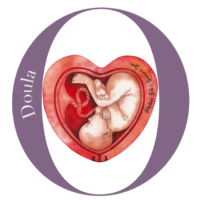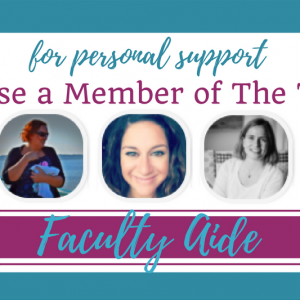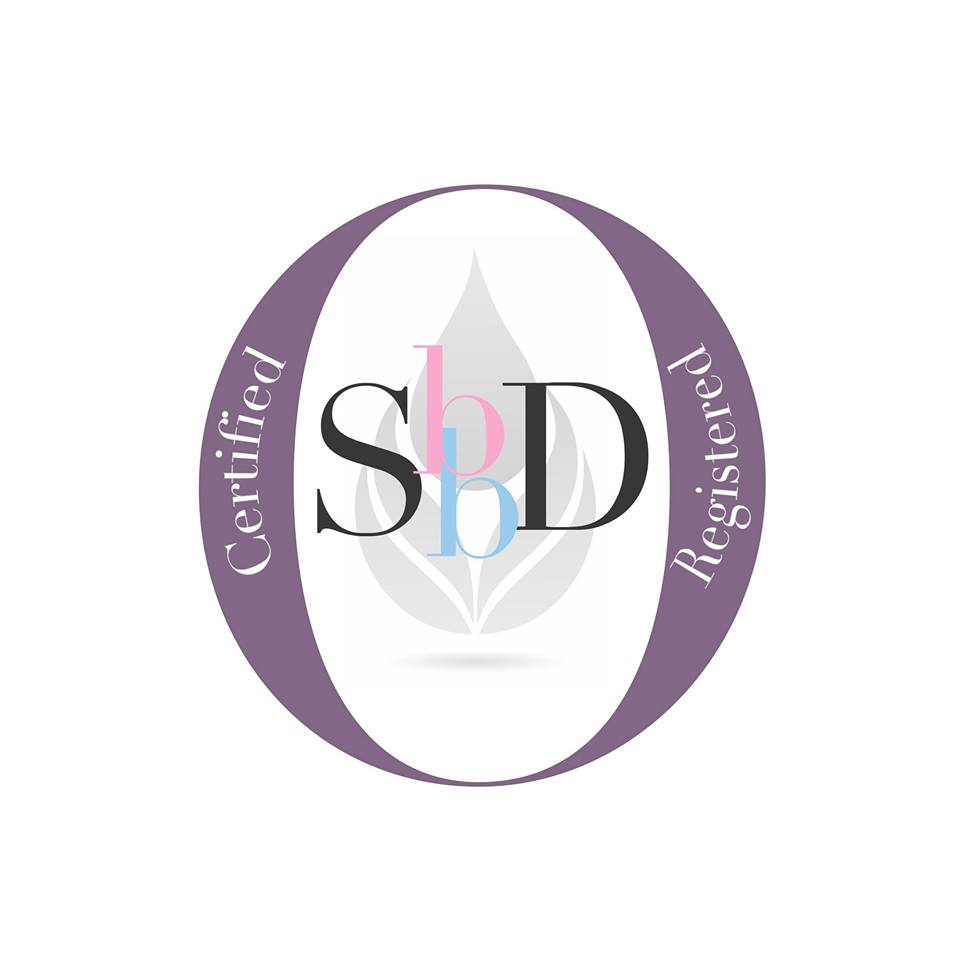As our presedential election nears again, people from both parties believe that God is on their side, that He is intrinsically for Republicans because they are generally pro-life or that God is intrinsically for Democrats because they offer better social programs.
“And then this, while Joshua was there near Jericho: He looked up and saw right in front of him a man standing, holding his drawn sword. Joshua stepped up to him and said,”Whose side are you on – ours or our enemies’?”
He said, “Neither. I’m commander of GOD’s army.” – Joshua 5:13-14 MSG
There are people who are so passionately protective of their party that they don’t realize or don’t care to see the room for improvement. Neither side is inherently superior. Both have significant room for improvement, regardless of who the person or people are who represent them.
I have my own personal convictions. I research both parties and I compare them to my values and beliefs. I vote carefully, consciously, hoping for the better of two evils to win. I know that even if I vote for my own party, it is not a perfect match. My party is not intrinsically Holy and God does not represent only one political side.
Whether you are pro-life, or pro-choice, God is not inherently on your side. Your side still has room for improvement. God is for His own will, not for the political, social, medical or even religious agendas associated with elective abortion.
Again, I have my own personal convictions. I was faced with elective abortion when I was young, and because of my decision to keep the pregnancy, I spent time hiding and in a battered women’s shelter. Those who speak the loudest against elective abortion are often those who have the luxury of not having had to look down that barrel themselves.
Mothers face elective abortion for a variety of reasons. We Christians would like to think that mothers only face elective abortion out of sexual laziness or moral irresponsibility. Some mothers face elective abortion because their lives are threatened. Because domestic violence is involved. Because of knowing that babies feel pain in utero and the fear that the baby feels pain associated with a fatal diagnosis. Because of medical coersion.
Mothers who face elective abortion face a variety of emotions. The strongest voices of pro-choice like to think that the mother is exhibiting her freedoms and that she can *shrug* do what she wishes with her body. They like to think that mothers facing elective abortion want to move quickly on from the entire situation, and that while maybe, someday, they will look back on their pregnancy and include that child into their family, their overall experience ends when the pregnancy ends. They like to think that rushing the mother through the process is best.
When a mother faces elective abortion, she is facing the most difficult decision she will ever face for her child. She may “choose” elective abortion, but it’s rarely because she “wanted” to. It is highly likely that she was presented with a situation – an overwhelming situation – and was told to make a choice with what she was given.
So, what is she given?
- Pro-life people tell her she is a murderer if she decides on elective abortion.
- Pro-choice people tell her that she has the freedom to choose.
- The doctor will tell her that it is easier to terminate the pregnancy.
The focus is on the death of the baby, not the life. The mother isn’t told about bonding with the baby in-utero and the importance of this bonding regardless of what she chooses. The mother isn’t told that what is occuring is birth. She isn’t told that anticipitory grief can negatively impact her labor. She isn’t told that she has the right to grieve. She isn’t told that the doctor may be concerned about his own agenda, that elective abortion is easier for him and more cost effective for him or the insurance company than holding a dying baby in the NICU for weeks. She isn’t told that she may be billed for the birth, and that the notification she’ll recieve in the mail will have offensive language. She isn’t told that she may still have breastmilk, that she still has organ donation options, that she will have lochia. She isn’t told that she can have special permissions regarding a funeral home or cremation. She isn’t told that the manner in which she births her baby holds significant potential to affect her emotionally and phychologically long after the event is over. She is made to believe that rushing through this process will make things easier in the end, and that whatever she is told is how it is going to be. That it’ll be easier when it’s over.
To those who espouse pro-choice rights the loudest, I ask, where are you? Why is the choice of termination the only choice she knows about?
To those who hold signs at abortion clinics, I ask, where are you? Do you drop the sign and hug the mother as she leaves, clutching her empty womb? Do you stand defiantly believing that God is for you because you hold the sign? Go hold her!
Stillbirthday is a pregnancy loss resource put together after my own personal experience with miscarriage. I do not promote elective abortion, enable anyone who is faced with elective abortion, and I am careful about the support I provide, because the support that others provide for elective abortion vulnerable mothers is so incomplete. I do not want this website being misused and I want mothers to make decisions having all of the information available to them. Because each side believes that they are morally superior, this isn’t happening.
Here are a few things to know when facing elective abortion:
- fatal diagnosis is not intrinsically painful to the baby.
- your previous health rarely has an impact on the sustainability of a baby with a fatal diagnosis or his endangerment to you.
- you need to get a second opinion from a different doctor, in a different hospital.
- the diagnosis may be wrong, or the prognosis may not be as horrendous as it was first explained or as you first heard.
- you are allowed and should bond with your baby while pregnant. This is not to trick you. It is because, whether you choose elective abortion or not, you are going to give birth in some way to your baby. Bonding with your baby will help facilitate the hormonal and emotional readiness of birth.
- you need to take your time. This is not to trick you into waiting so long that elective abortion is illegal. It’s so that you can process what is happening and bond with your baby.
- bonding with your baby offers you health benefits.
- you are allowed to speak your baby’s name, plan their birth, and plan their farewell. Most of the doulas here at stillbirthday will not walk the path of planning with you. Those who don’t, will respectfully refer you to others or decline. Those who do, will do so within our Principles of Service, will do so comprehensively, and understand that their role is not to enable your elective abortion decision and will honestly prepare you for the difficulties you will face.
- there are special options – important options – you have when the birth and death happen spontaneously that you don’t have when the birth and/or death are artificially orchestrated. These include important phychological, emotional and physical aspects. Our Stillbirthday Bereavement Doulas can walk that path alongside you.
- whatever the reason for your facing elective abortion, there really are other options – often several.
- you may resent your decision being called “elective” and you may resent the birth of your baby being called “abortion”. You may have to decide how you will refer to the birth and death of your baby, and that decision too may be a difficult, frustrating one.
- you will feel alone. All loss moms do, each for unique reasons. Homebirth moms feel alone. Miscarriage moms feel alone. You too, will feel trapped and silenced. You are not alone.
- you are allowed to grieve.
- you are allowed to call yourself a mother.
- if you are facing elective abortion in the fear that your child will suffer and are facing your options selflessly, you are a good mother.
- God loves your baby. Your baby is not an accident, a fluke, or a mistake, regardless of what diagnosis he has or what circumstances surround his life. Your baby has a purpose, however brief his life is and however different his physical form is. The Bible tells us this, and stillbirthday reinforces this message.
- God loves you. God will love you walking into the abortion clinic. He will weep for the life ended. God will love you leaving the clinic (or other birth place). He will wait for you to seek Him, and when you do, He will answer you.
- Those who condemn you will need to seek God’s forgiveness for the way they’ve stopped you from seeing Him. You will need to seek God’s forgiveness for the way you ended your baby’s life, regardless of the reasons. This is difficult because you’ve made a decision with what you were given. Nevertheless, your baby’s life is simply intrinsically valuable and your communication with God will need to recognize that. Those who truly repent will truly receive forgiveness. This is not a loophole, a way out, a way to make the decision of elective abortion easier. Asking God’s forgiveness with a contrite heart is not easy. But if you are seeking God’s forgiveness, stillbirthday can come alongside you.
If you are pro-life, and you meet a mother who is facing elective abortion, you can tell her that your convictions are different. I do. You can tell her that you are uncomfortable supporting her decision and that you can’t walk her journey with her. I do. You can tell her that there are alternatives and you can show her what those are. I do. You can tell her ways in which her decision will have additional ramifications. I do.
But it is not your place to condemn her.
It is highly likely the mother made her decision with what she believes is the best of intentions for her child. It is also highly likely that the mother will vacillate, will agonize, will second guess, will wonder and wish things were different – long after the birth and death of her baby. For the mother, she knows she will face those who believe she is murdering her child, even if she believes she is offering a peaceful resolution for what is inevitable. She mentally prepares herself for the condemnation – selflessly taking on this suffering so that her child doesn’t have to take on the prolonged suffering she believes him to have by carrying him to term. Read again: the mother legitimately has love in her heart.
Condemning the mother is not reflective of God’s love. It does not encourage her to want to seek Him. In fact, it draws her away, and at the most difficult and painful time in her life.
God is not inherently for pro-life people simply because they want mothers to carry to term, particularly when they do so with unloving and unforgiving natures. Nor is God inherently for pro-choice people simply because they have compassion and empathy for the mother or for the baby they believe is suffering, particularly when they do so without reverence to the inherent value of all human life. God is for His own will, and that is that we each glorify Him. And frankly we all have room for improvement.
…all have sinned and fall short of the glory of God. -Romans 3:23
Here are some words from the heart of a stillbirthday mother, who made the decision of elective abortion. She is soon to join our team as a stillbirthday mentor, helping mothers after they’ve endured loss through elective abortion:
Pregnancy is an event in life that thrills and scares moms and dads-to-be to the very core, especially first time parents. But what happens when that very event that thrilled and brings so many hopes, dreams, and plans for the future, gets ripped from your hands as to say… “Nevermind”?
This is exactly what happened to my family and I.
Finding out that I was unexpectedly 8 weeks pregnant in December of 2011 with our second child was scary, but caused so much excitement. My husband and I were getting more excited every day, we started telling our almost 2 year old that she would be a big sister, and our extended family outpoured with love and congratulations for our growing family. Everything was going smoothly, at least as smoothly had pregnancy symptoms and morning sickness would allow. Only had one scare, in which I went to the bathroom and when I wiped, there was blood on the toilet paper, none in the toilet, but I had never bled with my daughter. After talking to the doctor and convincing my husband that I did not need to go to the ER, I took it easy for a week and I never had any more issues. Each appointment we got more and more excited, talking about names for boys and girls, how our daughter would act towards a new baby, future sports teams, sleeping arrangements, vacations, and how everything would change with two blessings in our life.
March 15th, 2012- the day of our anatomy ultrasound. We were so excited to see our growing baby, and maybe even find out the gender! It’s a day so many parents get to find out whether they will have an “Adam” or an “Abby.” I laid on the table while my husband sat next to me with our daughter on his lap so they could see the ultrasound screen. In the next hour, our lives totally changed. Watching the ultrasound technician take measurements, laugh with us at my husband’s comments that our future child will play hockey and rugby, pointing out all the parts to our precious little one, we were accepting to open our hearts up to love more than one child, and we never knew it was possible. As you know, ultrasound techs are not allowed to give any diagnosis’s to patients, the doctors must do it, but ours gave no indication anything was wrong. After she left the room, the doctor came in. My husband and I were laughing and talking. All that stopped abruptly when the doctor confided that our child would not make it to her due date, and if she did, she would be lucky to even live more than a few hours after birth. She had a severe and fatal form of Semi lobar Holoprosencephaly with a cleft palate and lip with the possibility of Trisomy 13.
Although he gave his condolences and explained what everything meant and what the diagnosis meant for our future, he gave us the decision, one that no parent ever fathoms that they would have to make: carry to term and have our child die during the birthing process or shortly after, or induce now and our child would most likely not suffer. My doctor told us, in a way, we had to choose how to end our child’s life, whether it is now or in 4 months when she would be full term.
A decision NO ONE is ever prepared to make. So how does someone make a decision without totally falling apart and feel as though their heart is being ripped or shattered into tiny pieces? Others either don’t want to talk about it or will tell you what you “should do” or what they “would do.” As a parent who had to make that decision, all I really needed was not advice or what “the right thing” to do was, but just sincere condolences or respect for the decision that my husband and I made. We didn’t need approval or even support for what we chose to do; we just need others to be respectful and not berate us. Saying goodbye to our daughter was hard enough, we didn’t need anyone telling us that we were horrible people or that we made the wrong decision.
Making the decision to medically intervene and disrupt a pregnancy has NEVER been a topic in my family, no one has had to make that decision. I didn’t want anyone’s opinions because I did not want to feel worse than I did. What if they did not agree with what we were doing? How could I disappoint my family? Looking back now, I know I could have called my parents, my brothers, my friends, and they would have supported and given me words of encouragement and love for the decision I had to make. But I didn’t realize in my heart that they will love me through everything. Anyone who is faced with this decision does not want to hear that what they are doing is wrong. So like me, they don’t say anything until AFTER they have made the decision.
Anyone can tell you that the decision is yours, no one can make you choose do to something you don’t want to do. But what I realized is that moms and dads who are faced with a decision like this is that they don’t need to hear that we have a right to do what we want and choose whatever path we want; we know that already. We need and want to hear that even though we have a right to choose what we want, we are still allowed hurt because what we need and choose to do is a life changing decision that we never ever wanted to make. The most common response I got to the news was “I’m so sorry. I don’t know what to say” and that sufficed because in all honestly, I didn’t know what to say either. I was numb, hurt, scared, heartbroken. I felt I failed as a mother and as a wife. No one will know exactly how to help you, so they will ask how they can help, is there anything they can do for you or bring you. My opinion: tell them what they can do, whether it be to bring you a meal so you don’t have to cook, to leave you alone because you don’t want to be around people, or to just hold you while you cry. Tell them. If they really are supportive and want to help you, they will do exactly what you ask of them because they love you and want to alleviate your pain. There is no right or wrong way to grieve or for someone to tell you that they can’t or don’t know how to help you. But what means the most is that you grieve in your own way and allow yourself to grieve because you lost a child, you deserve to hurt too. And for others to understand that just because you chose the path you did, you still hurt as those who didn’t choose to lose a child, that it just happened to them.
With choosing to say goodbye to Makayla, I felt so alone and scared to even share my story. Alone because I didn’t know anyone who had lost a child so far in pregnancy, and scared because I didn’t want other loss moms to shun me because we chose to end our pregnancy. My loss was so different than other mom’s losses. I made the conscious decision to end my pregnancy at 20 weeks when others did not make the choice, but it just happened to them. My original thoughts when looking for grief support was “Am I going to offend a mother who had a stillbirth or miscarriage? Are they going to tell me I am heartless before I even give my reason for losing my child” I was terrified. The last thing I needed was other women telling me how horrible I should feel.
But no other loss moms even came close to any of those thoughts. There was an overflowing amount of love and support, condolences and prayers to my family and I. If anyone did give me a negative comment, as much as it stung and I wanted to yell at them “YOU DO NOT KNOW WHAT I FEEL AND CAN NOT TELL ME I SHOULD NOT HURT,” I learned to ignore. Not everyone is going to agree with the decision of abortion, and not everyone is going to keep the respect they had for you because they do not agree with your decision. Unfortunately, you cannot please everyone and make everyone happy with your decisions.
We induced the next day and our sweet angel Makayla Rose was born sleeping at 20 weeks on March 17th, 2012, she didn’t struggle for breath and she passed away some point before birth. Weighing 9 ounces and 9 inches long, she was our Irish angel. Our families called out of work if they could and came to the hospital to be there for us, to support us, even though most of them do not get along. Loss can bring families together, but they can also tear them apart. We got lucky as to have such love and support for the decision we chose.
With all that love and support, with so many people’s kind words and embraces, why did I still feel so alone?
We chose, with heavy hearts, to make a heartbreaking decision. We made the decision on our own; we didn’t discuss it with anyone besides our doctor since it was OUR choice to make. People, and it doesn’t matter if they know you or not, like to give advice or opinions on what THEY would do. But you can’t take it to heart, because the decision that is right for them, might not be right for you. Our choice to say goodbye to Makayla when we did, didn’t make us receive all positive and loving feedback, although I have not been given a lot of hateful comments or advice, I did receive one. “You should be thankful that God gave you such a blessing and you took away that life. How could any human being murder a precious baby?” My response to that person was, “How could any human being be so judgmental of a decision that they do not know the details of?” and I walked away with tears in my eyes. I was just called a murderer of my own child. Little did that lady know, I battled that thought with myself already, and I was just starting to come to terms with the decision I made.
Negative comments and advice will be made, as you cannot force people to see things from your point of view and you cannot put your heart into them so they can feel how that decision makes you feel.
Abortion. Medical termination. Electing guilt. Prenatal interruption. Late term abortion by medical intervention. All of these are words to describe what some moms and dads choose to do. Most will see it as “killing your child” or showing that you “made a mistake.”
The fact of the matter is, you are suffering a loss. Not all women choose this route because, “oops, I got pregnant by accident, I don’t want this child.” Some have to consciously make the heartbreaking choice, to say goodbye to a child they wanted so badly.
Is saying goodbye in utero the same as saying goodbye to someone who has already lived? Absolutely not. But it doesn’t mean it hurts any less.
A lot of people tiptoe around those who have lost a child, even to one in which they made the decision to say goodbye to. But a lot of people will tell you what a bad decision you made, how horrible of a person you are. And if you already have a child, or are still young, you may get the comments “At least you have one living child” or “You still have time to have another.” But like other grief stricken parents, many of us want others to acknowledge that we had a child who we had to say goodbye to, say our child’s name, don’t act like they didn’t exist. Because, to us, they were and very much still are a part of our lives.












